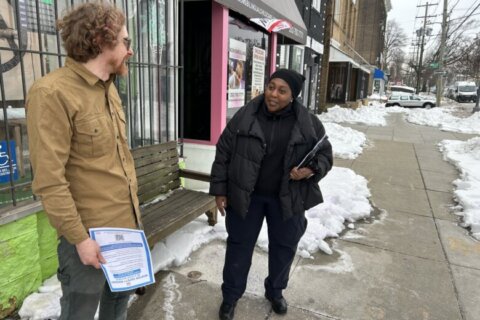The bird mortality event that affected the D.C. area appears to have abated, and wildlife officials are dropping their recommendations against feeding wild birds.
The Virginia Department of Wildlife Resources and the Maryland Department of Natural Resources have both announced that reports of diseased and dead birds have gone down in many jurisdictions.
The D.C. Department of Energy and the Environment hasn’t made an official announcement yet, but Jim Mosma, of City Wildlife, said the department had told him that they’d be following the same guidelines.
The Virginia and Maryland departments both said in statements that feeding wild birds, and providing birdbaths, can resume with some restrictions:
- Clean feeders and bird baths with soap and water at least once a week, then disinfect with a 10% bleach solution to prevent potential infectious disease spread between birds and other wildlife. After cleaning, rinse well with water and allow to air-dry. When handling bird feeders and baths be sure to wear disposable gloves and wash your hands when finished.
- When feeding birds, follow expert recommendations such as those listed in the Audubon International Guide to Bird Feeding.
- Avoid handling birds unless necessary. Dispose of dead birds in a plastic bag, seal, and discard with household trash, or alternatively, bury them deeper than 3 feet to prevent disease transmission to other animals. If handling is necessary, wear disposable gloves or use plastic bags on your hands to avoid contact with carcasses.
- Keep pets away from sick or dead wildlife.
As before, you should report any sick or dying birds either to the Maryland DNR at 877-463-6497 (410-349-8130, if you’re calling from out of state), or the Virginia DWR online.
The mortality event started in May and spread to D.C. and nine states. It mainly affected fledgling common grackles, blue jays, European starlings, American robins and other species of songbirds in D.C., Maryland, Virginia, West Virginia, Kentucky, Delaware, New Jersey, Pennsylvania, Ohio and Indiana.
Researchers are still working out what led to the deaths. Among the causes that have been ruled out are avian influenza and West Nile virus; tests have also been negative for heavy metals, common pesticides and herbicides.
WTOP’s Kate Ryan contributed to this report.








